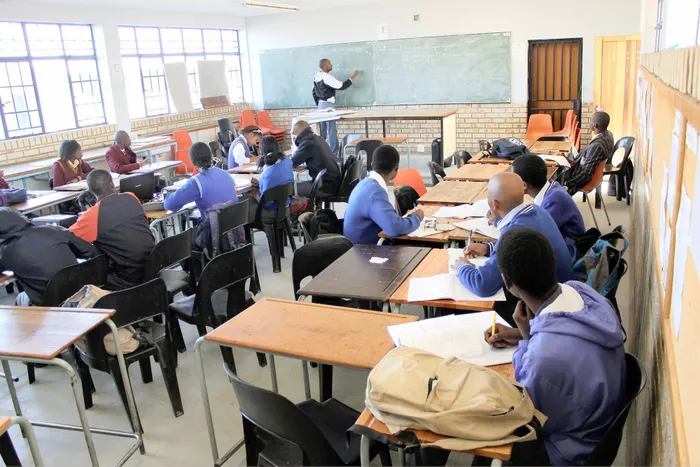
Newly published regulations of the Basic Education Laws Amendment Act (Bela) have affirmed that undocumented children in the country have a right to education.
Image: File
Newly published regulations of the Basic Education Laws Amendment Act (BELA) have affirmed that undocumented children in the country have a right to education.
Minister of Basic Education, Siviwe Gwarube, published the regulations this week for public comment. The BELA Act aims to improve the governance of schools in South Africa.
The gazetted regulations clarify key provisions of the South African Schools Act regarding school capacity and admissions. The issue of providing services to undocumented foreign nationals has been in the news lately after groups in Durban and Johannesburg were barring foreign nationals from accessing hospitals.
The KZN Department of Education recently revealed that it has close to 150,000 undocumented learners in its schools.
MEC Sipho Hlomuka stated that the prevalence of undocumented learners in schools is one of the most challenging problems affecting the efficiency of their educational system. The latest 2025 Snap Survey indicates that approximately 149,000 undocumented learners are attending their schools.
In a statement, Basic Education officials noted that the regulations are designed to ensure that the amendments introduced by the BELA Act, which has been law and fully implementable since December 2023, are implemented in a manner that upholds learners’ rights, enhances school functionality, and maintains the careful balance of powers and functions between School Governing Bodies and the government in the proper management and governance of schools.
The gazette addresses regulations regarding admission to schools and capacity.
It states: “The right to basic education extends to everyone within the boundaries of South Africa, regardless of their nationality and immigration status. Learners without valid documentation are equally entitled to admission to public schools as documented learners, provided that their parents submit, within the time frames contemplated in regulation 13, their admission applications in the ordinary course, together with all the required documents that are available to them or a sworn affidavit explaining why they are unable to provide such documents.”
It continues that the principal of a public school must, within seven working days of admission, report to the Head of Department (HOD) or the designated education district official any instance where a learner is admitted without valid documentation. The HOD or a person duly authorised by him or her must hold the parents of such learners accountable for acquiring a birth certificate for the learner while they receive education.
The regulations also spell out the power of the HOD regarding learner admission and the review of admission policy.
“The HOD is responsible for coordinating learner admissions in public schools in collaboration with school governing bodies, with the aim of ensuring that all eligible learners are accommodated timeously and effectively in terms of the Act. If the HOD believes that a public school’s admission policy does not comply with the Act or these Regulations, the governing body must be requested in writing to review and amend the policy,” it states.
“A learner may not be refused admission on grounds that constitute unfair discrimination, including grounds such as race, ethnic or social origin, nationality, colour, gender, sex, age, disability, sexual orientation, religion, conscience, belief, culture, language, pregnancy, HIV and AIDS status, or any other illness. The Act and these Regulations apply equally to learners who are not citizens of the Republic of South Africa.”
In a statement, the department said, “This marks a significant milestone in the responsible and inclusive implementation of the BELA Act, aimed at strengthening the governance, equity, and quality of education for the country’s 13.5 million learners.”
Gwarube emphasised that the release of these regulations for public comment is an important opportunity for education stakeholders and the broader South African public to actively shape the future of basic education in our country.
“These regulations are instruments that will affect how schools are governed and managed, how children are admitted, and how our values as a society are reflected in our education system. I call on all South Africans, including parents, teachers, school governing bodies, civil society, education experts, and community members to participate meaningfully in this public comment process,” said Gwarube.
The South African Democratic Teachers Union (SADTU) said it was still appraising the regulations. “We are going to submit our comments on or before September 5 as per the Minister’s call.”
Related Topics: